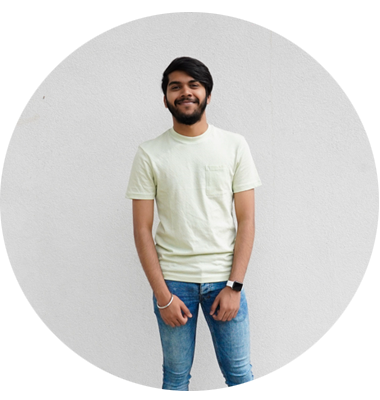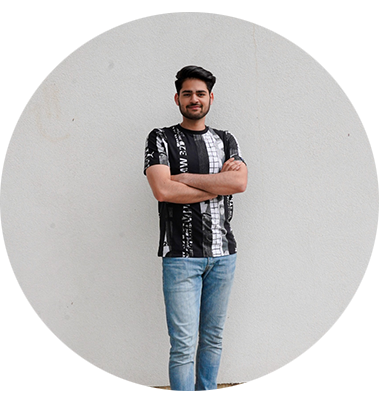South Asian Heritage Month runs from 18 July – 17 August annually, celebrating and supporting British South Asian heritage in the UK through education, arts, and culture.
The theme of this year's South Asian Heritage Month is ‘Stories to Tell’, celebrating the stories that make up a diverse and vibrant community. Our ‘Sharing Stories Tasting Table’ event on 26 July brought colleagues together, encouraging staff and students to tell their heritage stories.
As part of our Sharing Stories initiative, we also asked our Students Union’ colleagues to share their unique South Asian heritage stories with us. You can read their blogs about their experiences studying and working at the University below:
Taha Khan, President (Students' Union)

My name is Taha Khan, and I am from Lahore, Pakistan. I came to the UK in 2020 and after living here for three years, I've noticed that, while there are many cultural and traditional differences between South Asia and Britain, the one thing that unites them is their rich history. This made me realise how important it is for people to better understand the impact South Asians have had in Britain, and South Asian Heritage Month is an important way in showcasing how that impact seeps its way through different aspects of British life.
South Asians make up 9.3 percent of the UK population, yet when I started at the University of Huddersfield, it stood out to me that there weren't many South Asians in higher positions of authority within the institution and in the UK in general. This sparked my interest in becoming the Student’s Union equalities officer in 2022. My motivation for wanting to become the equalities officer was to be a catalyst for opening doors for the South Asian community so that they could see themselves in positions that they may not have considered achievable previously. I wanted to be able to lift my community so that they could realise how vital their voice is. I believed this was significant because, given that the South Asian community contributes substantially to British life in areas such as business, health, science, the arts, academia, politics, and sports, one would think that their input would be viewed equally to the people with whom they share their community, and I will work hard to achieve this throughout my time here.
I am thankful for the opportunities I was able to create for myself with the help of my community while in the UK, which has now led to me being elected as President of the Student’s Union. I have also met people from all cultures, ethnicities, and religions, which improved my outlook on life and broadened my perspective. Nonetheless, I am aware that being in the UK serves as a reminder of the colonial influence imposed on South Asia however, initiatives are being taken to promote EDI and inspire people to believe in their own representation and identity. Throughout this important month and beyond, I will continue to represent South Asians to the best of my ability.
Rohith Narayan, Activities Officer (Students' Union)

The purpose of South Asian Heritage Month is to remember, recognise, and celebrate the history and culture of South Asians in Britain. Every year, the month is observed between July 18- August 17. It aims to foster open communication so that people can better comprehend diversity in Britain. Bangladesh, Bhutan, India, Maldives, Nepal, Pakistan, and Sri Lanka are among the countries of south Asia. Due to higher degrees of contact with outside cultures, the traditions of the various ethnic groups in South Asia diverge as they are impacted by them. There are about three million members of the British South Asian community, and at least one in every twenty citizens of the nation is of South Asian descent.
Being Indian, my cultural values and beliefs diverge significantly from those of my surroundings. Being an ethnic minority student obtaining tertiary education, it was initially difficult for me to fit in since ethnic identification and ethnic socialisation have a protective and facilitative effect on learning motivation and academic accomplishment. However, my desire to achieve academic achievement has always been driven by my desire to reconstruct my ethnic identity and create new social representations. I've worked out how to engage with the outside world and have created new spaces and roles (such as a heritage community with a better reputation in society). I had a fantastic academic and social experience because to the university's improved opportunities.
In the past three years I have been in various instances and have experienced culture shock. However right now being the Activities Officer, I have become even more confident, and I am going to be more supportive to students from different ethnic backgrounds so that they feel inclusive and get mingled around quickly. I am going to put forward measures to make sure that every student at the university feels the vibe of being a youngster by bring out more events that suits everyone regardless of what their background is.
Wamick (Equalities Officer, Students' Union)

I am Wamick and I am from Jammu & Kashmir, India. I truly love being a South Asian because of our heritage, i.e., the vibrant colours, the beautiful clothes, the music, dance, the aroma of the mom’s cooked food which you can smell first when you get out of your plane in your homeland.
One of the beautiful things about this month is that it unites cultures from different parts of South Asia e.g., India, Pakistan, Bhutan, Sri Lanka, Nepal etc. It was 2019 when I moved to the UK to study Business Management. At first it was not the same for me as I was 18 and I am in a different country without my family it was stressful. But with the time I came to know about different aspects of this country. I met many people from different backgrounds, cultures and religions which helped me to get an understanding about their perspectives and views. The best part is that many people were coming to me and asking about my religion and background and my birthplace which I felt happy about.
I remember the time of Ramadan (the month of fasting for Muslims) we all used to open our fast in the Jo Cox community centre which is in the University. Here, everyone used to come irrespective of their culture, background, and religion. Many students used to join us and eat our dinner and chat about different cultures. I remember on Sundays there used be an event from the Christian society and once they were done with their event, they used to come and sit with us and ask how your day was and used to eat with us. This was something which I liked about this country.
Moving to the UK was one of the biggest turning points in my life and being a South Asian, I have not felt a major difference here.
